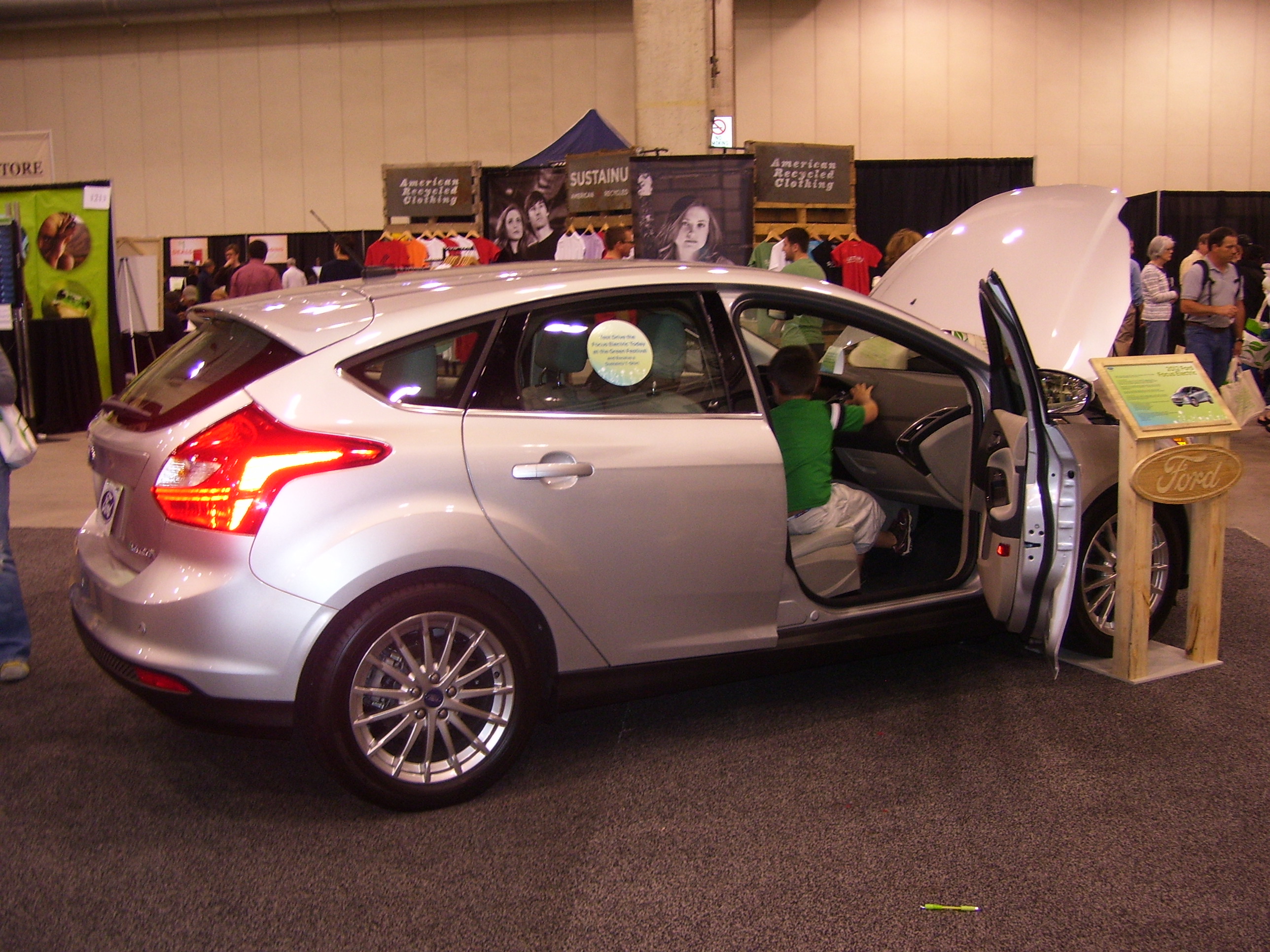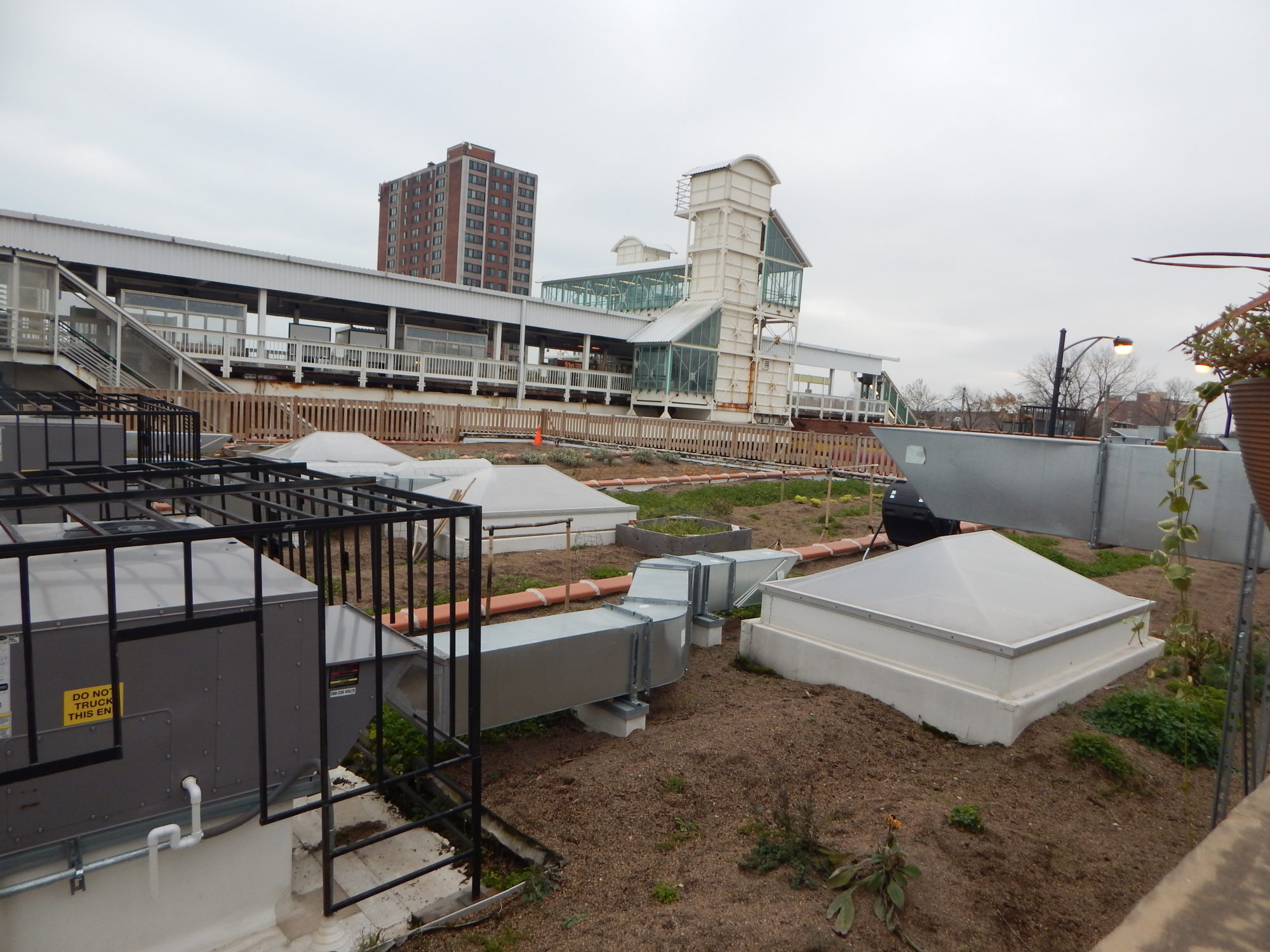As much as progressives and ecologically inclined individuals promote public transit, car sharing and other planet-friendly alternatives to individually operated vehicles, the fact remains that America loves its cars. To be fair, there are instances when nearly all individuals need or want access to a car, van or truck. In rural areas and regions where public transit is scarce or nonexistent, being without one’s own vehicle literally means being stranded.
It’s no wonder, then, that one of the most heavily visited exhibits at the 2012 Chicago Green Festival was the all-electric Ford Focus, one of several models on display by Ford. Visually modeled after the popular and well-reviewed gasoline powered Ford Focus, the all-electric model is Ford’s answer to the Nissan Leaf and, to a lesser extent, the dual gasoline and electric-powered Chevrolet Volt. According to the representatives at the Green Festival, there are only 36 Focus Electric models on the road at present, mostly utilized as company cars for Internet giants Google and Yahoo. However, the manufacturing plant in Wayne, Michigan is equipped to produce the Focus along with other Ford models, and can increase or decrease production as demand warrants.
The all-electric model is priced at a hefty $39,999. However, buyers are eligible to receive federal income tax credits that can decrease the out-of-pocket costs; additional financial incentives may also be available at the state level. In addition, owners of all-electric cars are spared the pain at the pump of fluctuating (and usually increasing) gasoline prices. Home charging stations for overnight charging of the Focus Electric are available at Best Buy, with installation by the Geek Squad. Public charging stations are also becoming increasingly available, especially in urban areas.

Like the Toyota Leaf, the Focus Electric derives its power from a lithium-ion battery. The Focus Electric has a regenerative braking system that recaptures up to 90 percent of the energy normally lost through conventional friction braking. It also has a liquid-powered heating and cooling system to regulate battery temperature against exterior conditions, which can be a real advantage with the temperature extremes that occur in Chicago.
The estimated battery range for the Focus Electric is 76 miles, which is comparable to that of the Leaf. The battery for the Focus Electric is warranted for 100,000 miles. After reaching the end of their useful lives for powering cars, batteries will be repurposed for less demanding chores, according to the representatives at the Green Festival, diminishing the risk that spent batteries will be shipped off to developing countries in Asia and Sub-Saharan Africa.
In addition to the model available for viewing at the Green Festival, vehicles were available for test drives. Licensed drivers could take the cars out for a brief spin, accompanied by a representative to provide guidance on operating the vehicles. The Focus Electric proved to be fun to drive. Like other electric cars, its operation is whisper quiet. The ride is smooth and the steering is as responsive as that of a gasoline-powered car. However, the brakes are super-sensitive. A gentle tap is more than sufficient to bring the vehicle to a complete stop. Slamming on the brakes in the Focus Electric may result in flipping the car over.
At present, electric cars like the Leaf, the Volt and the Focus Electric offer a viable, although expensive, in-town alternative to gasoline-powered vehicles. In an ideal world where charging stations are as plentiful as gas stations, electric cars may provide a viable option for highway travel as well. With increased driving ranges and reduced battery recharging times , it may well happen.
